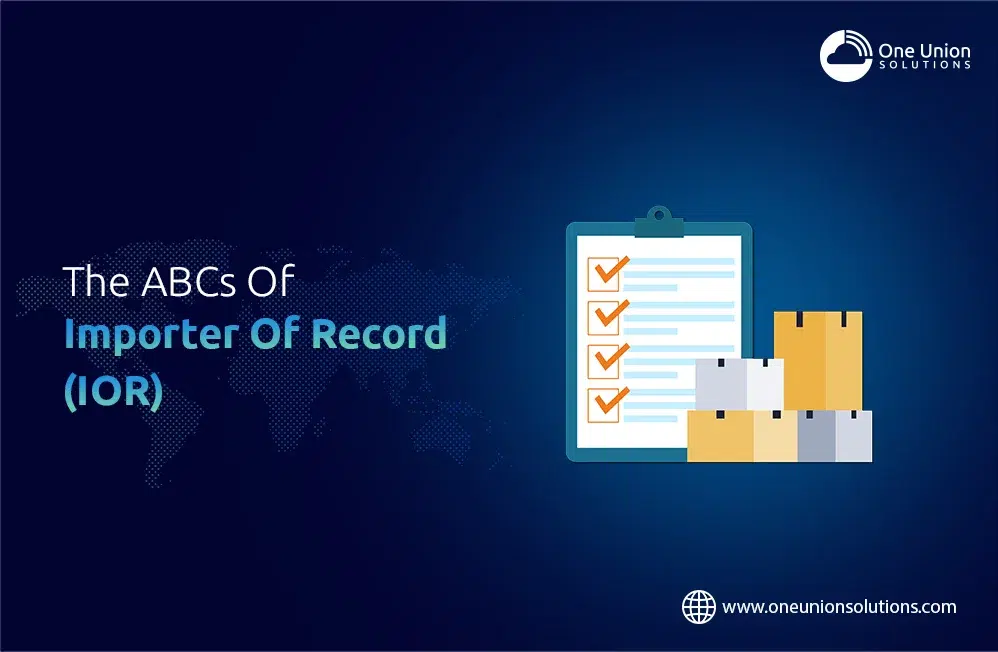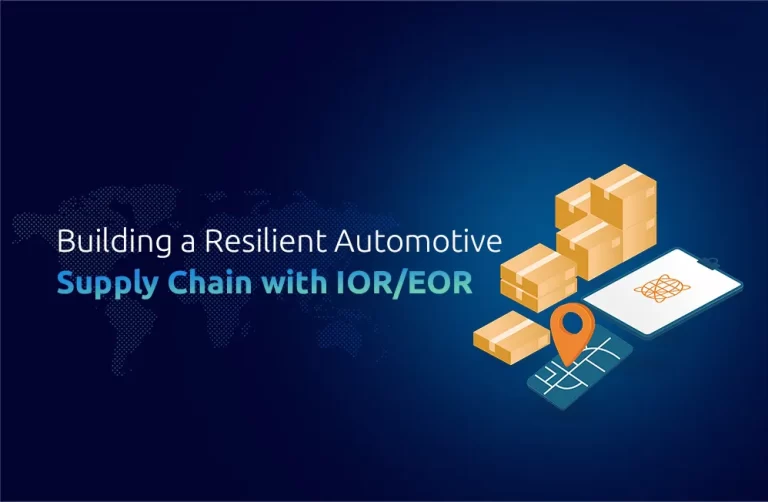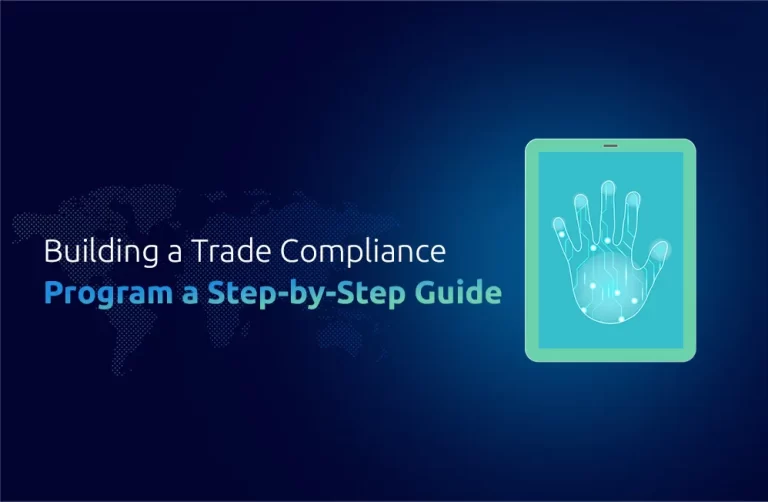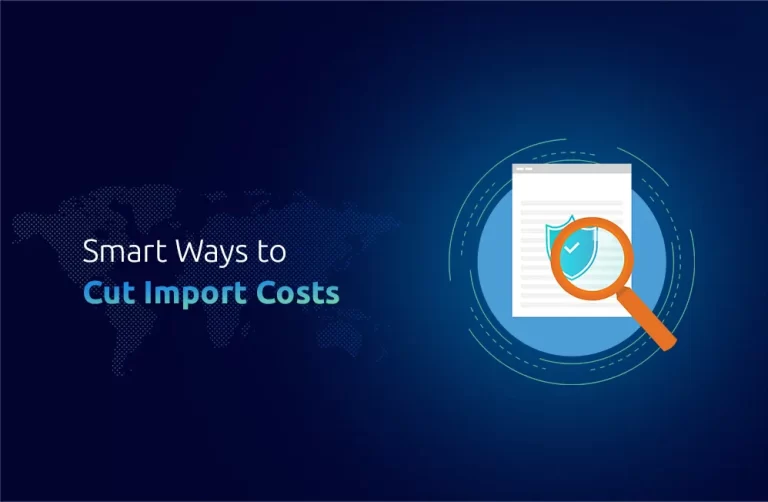In the modern global economy, companies are continuously trading internationally to get access to new markets and a variety of resources. However, there are several laws, rules, and compliance requirements to navigate while importing items over international boundaries. The importer of record, or IOR, is a key player in this process and is in charge of ensuring that commodities enter a nation legally and under all applicable rules and regulations.
Navigating Import Essentials: What is IOR?
The Importer of Record (IOR) is a crucial organization that guarantees adherence to customs laws and promotes the efficient importation process. Their main duties include paying taxes, complying with customs, and handling paperwork. For IORs to efficiently negotiate regulatory duties, such as record-keeping and fines for non-compliance, they must have a thorough understanding of the legal landscape. Clarifying IORs’ place in international trade can be achieved by dispelling certain frequent misconceptions about them. Businesses must consider operational effectiveness, risk minimization, and compliance knowledge when analyzing the strategic ramifications of collaborating with an IOR. Understanding the fundamentals of IOR is ultimately necessary for smooth importation procedures and the ease of international trade.
Unlocking the Basics: An Introduction to Importer of Record
The Importer of Record (IOR) serves as a vital link in the importation process, ensuring legal compliance and facilitating the movement of goods across international borders. Understanding the ABCs of IOR begins with grasping its fundamental definition and role in importation. Essentially, an IOR is the entity legally responsible for ensuring that imported goods comply with customs regulations and other legal requirements of the destination country. This includes tasks such as paying duties and taxes, obtaining necessary permits, and providing accurate documentation for customs clearance. Additionally, the IOR assumes liability for the imported goods, including any associated risks and legal obligations. By understanding these basics, businesses can navigate the complexities of international trade more effectively and ensure smooth importation processes.
What is IOR: An Introduction
What defines an importer of record?
An importer of record (IOR) provides a service when a business imports products into a country where it does not have representation or wants the goods to remain the property of the exporter/shipper/origin company.
Understanding IOR: comprehending the Fundamentals
Fundamentally, an Importer of Record is a person or organization that has been officially assigned legal responsibility for carrying out all import-related duties. This covers tasks including making sure import laws are followed, paying applicable taxes and levies, and keeping accurate records. Businesses may ensure seamless operations and streamline their import procedures by assuming the role of IOR.
Defining Record Importer: The Essential Ideas
It’s useful to understand the differences between Free Trade Areas, Customs Unions, and Single Market agreements when identifying trade agreements. Free Trade Areas are the most prevalent form of cooperation, with member countries agreeing to minimize or remove tariffs and trade barriers among themselves. Each nation, however, retains its own trade policies with non-member countries. For example, although European Union countries enjoy important trade terms among themselves, they still impose separate tariffs for imports from outside their region. These imports are often classified using Harmonized System codes (HS codes) to determine the applicable tariffs under the HTS Harmonized Tariff Schedule (HTS).
Historical Evolution of IOR: From Origins to Present
The Importer of Record (IOR)’s historical development illustrates how international trade procedures have changed throughout time. Importers were directly responsible for adhering to customs laws and tariffs, and importation procedures were initially more straightforward. Nonetheless, the requirement for a specialized organization to oversee these duties emerged as international trade increased and rules grew more intricate. In order to satisfy the needs of contemporary commerce, the IOR’s function has changed throughout time.
The IOR has evolved into a more sophisticated process due to technological improvements and globalization, frequently incorporating third-party logistics providers or expert compliance professionals. This progression signifies a change toward increased proficiency and effectiveness in handling the complexities of imports. Presently, the IOR is essential in promoting global trade by guaranteeing adherence to rules, reducing potential hazards, and expediting the customs clearing procedure. Business owners involved in international commerce must comprehend the IOR’s historical growth since it sheds light on how the laws and procedures that control imports today were developed.
Understanding the Significance of Being an Importer of Record
The Role and Impact: Significance of Being an IOR
In the realm of global trade, being an Importer of Record is quite significant. Businesses may guarantee compliance with import restrictions and avoid expensive penalties by taking on this job. Being the legally acknowledged entity in charge of the imported products also makes it possible to work effectively with customs officials and promotes seamless cross-border travel.
Core Responsibilities of an IOR
A firm must carry out several fundamental duties as an Importer of Record. These include paying customs and taxes, adhering to applicable legislation, accurately classifying items, and maintaining appropriate paperwork. Businesses may position themselves as trustworthy and compliant participants in the global commerce ecosystem by upholding these obligations.
Impact on Global Trade: Why IOR Matters
Enabling international trade requires the Importer of Record function. Without an IOR identified, companies might face administrative difficulties, delays, and even non-compliance problems. Businesses may actively contribute to smooth and effective international trade operations by being cognizant of and accepting the function of IOR.
The Legal Landscape: Navigating IOR Compliance
Compliance Matters: Legal Aspects of Importer of Record
Being an Importer of Record requires strict adherence to regulations. A seamless import procedure depends on knowing and abiding by pertinent rules and regulations. Businesses may reduce the possibility of legal problems, maintain their good name, and build trusting relationships with all parties involved in the import process by making sure compliance is met.
Legal Structure: Comprehending IOR Adherence
The legislative structure in each nation on the compliance of IORs might differ. Businesses must acquaint themselves with the particular regulations of the countries in which they conduct business. This entails being aware of the license requirements, import limitations, documentation requirements, and any other legal intricacies that can affect the import procedure.
Regulatory Responsibilities: Handling Trade Regulations as an IOR
As an Importer of Record, navigating trade rules and regulations may be difficult. A comprehensive comprehension of international trade agreements, customs procedures, and other pertinent legislation is necessary. Through proactive compliance monitoring, firms can guarantee seamless customs clearance and steer clear of possible legal hazards.
IOR Simplified: Unveiling the Basics
Making Sense of Everything: The Basics of IOR Simplified
Though it may appear complicated at first, comprehending the idea of an Importer of Record may be made easier by dissecting it into its essential parts. Fundamentally, meeting compliance standards, keeping accurate documentation, and assuming legal responsibility for the imported items are all part of being an IOR. Businesses may successfully manage the import process by keeping these fundamentals in mind.
Important IOR Elements: Describing the Fundamentals
Firms must comprehend the essential elements of being an Importer of Record. These elements include administering import licenses and permits, processing customs clearance, accurately classifying commodities, and adhering to numerous trade laws. By focusing on these elements, companies may build a solid basis for their import operations.
Common Misconceptions: Busting Myths About IOR
There exist several misconceptions regarding the Importer of Record that must be cleared up. An often-held misconception is that the IOR can only be the product’s owner. The Importer of Record can be any approved person or organization. There is also a misperception that the duties of an IOR are extremely difficult and demanding. Businesses may effectively manage their role as an IOR by grasping the principles and obtaining professional advice when necessary.
Consideration for Businesses
Strategic Perspective: Taking IOR Into Account for Your Company
Companies should carefully assess how the Importer of Record position fits into their import requirements and strategic goals. Businesses can determine if it is appropriate for them to assume the obligations of an IOR by considering variables such as the number of imports, the complexity of trade legislation, and the available resources.
Assessing whether IOR Is Suitable for Your Business’s Needs
Before being designated as an Importer of Record, companies had to evaluate their unique import needs and capacities. This entails assessing their comprehension of trade laws, their availability of knowledge, and their capacity to carry out the primary duties. Businesses can decide whether becoming an IOR is the best option for them by carrying out a complete examination.
Conclusion
Managing Import Success: The Fundamentals of Record Importing
Businesses involved in international trade must recognize and take into account the importance of being an Importer of Record. Businesses that assume the obligations of an IOR may guarantee compliance, expedite their import procedures, and support the efficient operation of international commerce. To effectively navigate the world of IOR, keep in mind that knowledge is power and that you should seek professional assistance when necessary.
Final Thoughts: Key Takeaways on What is IOR
The term “Importer of Record” designates the entity in charge of carrying out import duties. Businesses involved in international commerce must comprehend the foundations of IOR. The main responsibilities of an importer of records are compliance, paperwork, and legal requirements. Accepting the function of IOR helps to prevent any problems and promotes effective international commerce operations. Companies should assess their import requirements and capacities before choosing to become an IOR.
FAQs
What legal ramifications come with becoming an IOR?
The entity accepts legal responsibility for the imported items as an IOR, together with any risks and compliance requirements related to them. This covers the possible consequences of breaking customs laws.
How can someone become a Record Importer?
An entity usually has to register with the destination country’s customs authorities and meet all importation-related and compliance-related criteria to become an Importer of Record.
What advantages do companies have when they work with an Importer of Record?
Businesses may reduce risks connected with international commerce, guarantee regulatory compliance, and expedite importation procedures by collaborating with an Importer of Record. Leaving import logistics in the hands of professionals, enables firms to concentrate on their core competencies.










